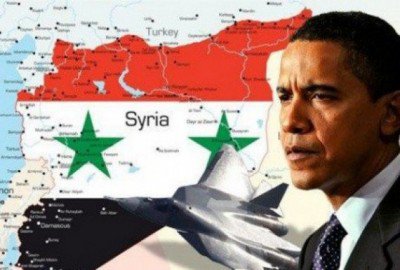“Endless Wars”: Biden and US Foreign Policy in the Middle East

All Global Research articles can be read in 51 languages by activating the “Translate Website” drop down menu on the top banner of our home page (Desktop version).
***
For at least the last twenty years, the United States have constantly been waging wars in the Middle East. On October 7, 2001, George W. Bush began bombing Afghanistan under the pretext of hunting down Osama bin Laden, allegedly the perpetrator of the 911 terrorist attacks.
In 2003, Bush continued his war adventure in Iraq, to the point that the state budget was in deficit and the United States was now heavily indebted. The sum of all outstanding debts by the United States federal government as of March 1, 2021, exceeds $ 28 trillion.
 After carrying out an election campaign filled with antiwar narratives and denouncing Republican war policies, Barack Obama then rose to power. Although Obama withdrew most of his troops from Iraq and Afghanistan, the air war continued to expand, mainly using drones. Obama also added special operations forces around the world. In 2016, US specialty operators could be found in 138 countries, increasing by 130% over the Bush era. Obama also supported Saudi Arabia’s attack on Yemen. The Saudi Foreign Minister, Adel al-Jubeir, once said,
After carrying out an election campaign filled with antiwar narratives and denouncing Republican war policies, Barack Obama then rose to power. Although Obama withdrew most of his troops from Iraq and Afghanistan, the air war continued to expand, mainly using drones. Obama also added special operations forces around the world. In 2016, US specialty operators could be found in 138 countries, increasing by 130% over the Bush era. Obama also supported Saudi Arabia’s attack on Yemen. The Saudi Foreign Minister, Adel al-Jubeir, once said,
“We have British officials and American officials and officials from other countries in our command-and-control centre. They know what the target list is and they have a sense of what it is that we are doing and what we are not doing” (The Guardian,15/1/2916).
Obama’s support to overthrow the Assad government in Syria since 2011 resulted in a prolonged war to this day. The Syrian war represents the greatest hypocrisy of United States foreign policy. The jargon of democracy and anti-terrorism that the US always utters becomes nonsense when at the same time the US is actually providing weapons to Al Qaeda in Syria. As Rep. Tulsi Gabbard said,
“[the U.S. government] quietly supporting allies, partners, individuals and groups who are working directly with al-Qaida, ISIS, Jabhat Fateh al-Sham and other terrorist groups by providing them with money, weapons and intelligence support in their fight to overthrow the Syrian government” (NPR, 10/12/2016).
In his eccentric cowboy style, the next president, Donald Trump, promised to “Make America Great Again.” But he ended up increasing his troops in the Middle East, reaching nearly 90,000 soldiers, and continuing his involvement in the Syrian war.
 During Trump’s time, the Palestinian Authority has cut off communications with the United States government after Trump unilaterally declared Jerusalem the capital of Israel and moved the US embassy to the holy city. Trump also arbitrarily killed generals Qassem Soleimani and Abu Mahdi Al Muhandis, two figures who played a significant role in the war against ISIS in Iraq and Syria.
During Trump’s time, the Palestinian Authority has cut off communications with the United States government after Trump unilaterally declared Jerusalem the capital of Israel and moved the US embassy to the holy city. Trump also arbitrarily killed generals Qassem Soleimani and Abu Mahdi Al Muhandis, two figures who played a significant role in the war against ISIS in Iraq and Syria.
This assassination raises the question, doesn’t the US claim to be fighting ISIS, but why were two heroes who went straight to the field fighting their lives against ISIS to be killed? Trump’s action ended in an embarrassing incident, where the most extensive US military base in Iraq, Ain Al Assad, was bombarded by Iran precisely as a form of retaliation.
What about Joe Biden? In his 100 days of his reign, there are several steps by Biden that seem to promise hope. For example, the US has removed at least three Patriot anti-missile batteries from the Gulf region, including one from Prince Sultan Air Base in Saudi Arabia, and reducing its military facilities from the Middle East.
Biden has also stated that he is blocking arms exports to Saudi Arabia (which are used to attack Yemen) and offering Iran to resume nuclear talks. Biden has stated that 2500 military personnel will be withdrawn from Afghanistan from May 1, 2021. However, Biden’s plan needs to be scrutinized.
As Branco Marcetic wrote in Jacobin (16/4/2021),
“If an invading force pulled troops out of the United States but continued bombing and sending covert forces into it, ask yourself if you’d think the war had finished.” The New York Times reported that the Biden administration will likely reinstate the US army with spies, special forces, and private military contractors and the US will continue to use drones to eradicate “suspected terrorists”.
 In Syria, the United States Army remains. Middle East Monitor wrote (20/3/2021) that about 90 percent of Syrian oil is under the control of US troops. The total losses suffered by Syria due to losing access to its oil resources reached 92 billion dollars.
In Syria, the United States Army remains. Middle East Monitor wrote (20/3/2021) that about 90 percent of Syrian oil is under the control of US troops. The total losses suffered by Syria due to losing access to its oil resources reached 92 billion dollars.
In Palestine, the US foreign policy doctrine, namely to equate its national interest with Israel’s national interest, has remained in Biden’s hands. Biden has said he will not change Trump’s decision towards Jerusalem, even though this is a violation of international law, including UN Security Council Resolution 476/1980, which prohibits Israel from taking any legislative and administrative actions that change the character and status of the Holy City of Jerusalem and this is also a violation of the Fourth Geneva Convention.
The position of the United States is undoubtedly very crucial in the political constellation in the Middle East. As Hinnebusch has written in his book, “International Politics of Middle East”, the Middle East countries are generally periphery countries, dependent on core countries (namely Western countries that dominate the Middle East, especially the United States). For this reason, Biden’s foreign policy in the Middle East will significantly affect security in the region.
As President of the United States, Biden should prioritize the interests of his people.
A poll conducted by the Charles Koch Institute in June 2020 showed that 70% of Americans want their soldiers to be sent home from the Middle East.
They want the “endless wars” launched by the United States government in the Middle East to be stopped immediately and that domestic interests be put forward. However, as long as Biden continues the policy of his predecessors, namely continuing various wars in the Middle East, both on the grounds of “fighting terrorism” and protecting Israel, it is unlikely that much change will occur in the region shortly.
*
Note to readers: please click the share buttons above or below. Forward this article to your email lists. Crosspost on your blog site, internet forums. etc
Dr. Dina Y. Sulaeman is Director of Indonesia Center for Middle East Studies.
Featured image is CC BY-SA 2.0

